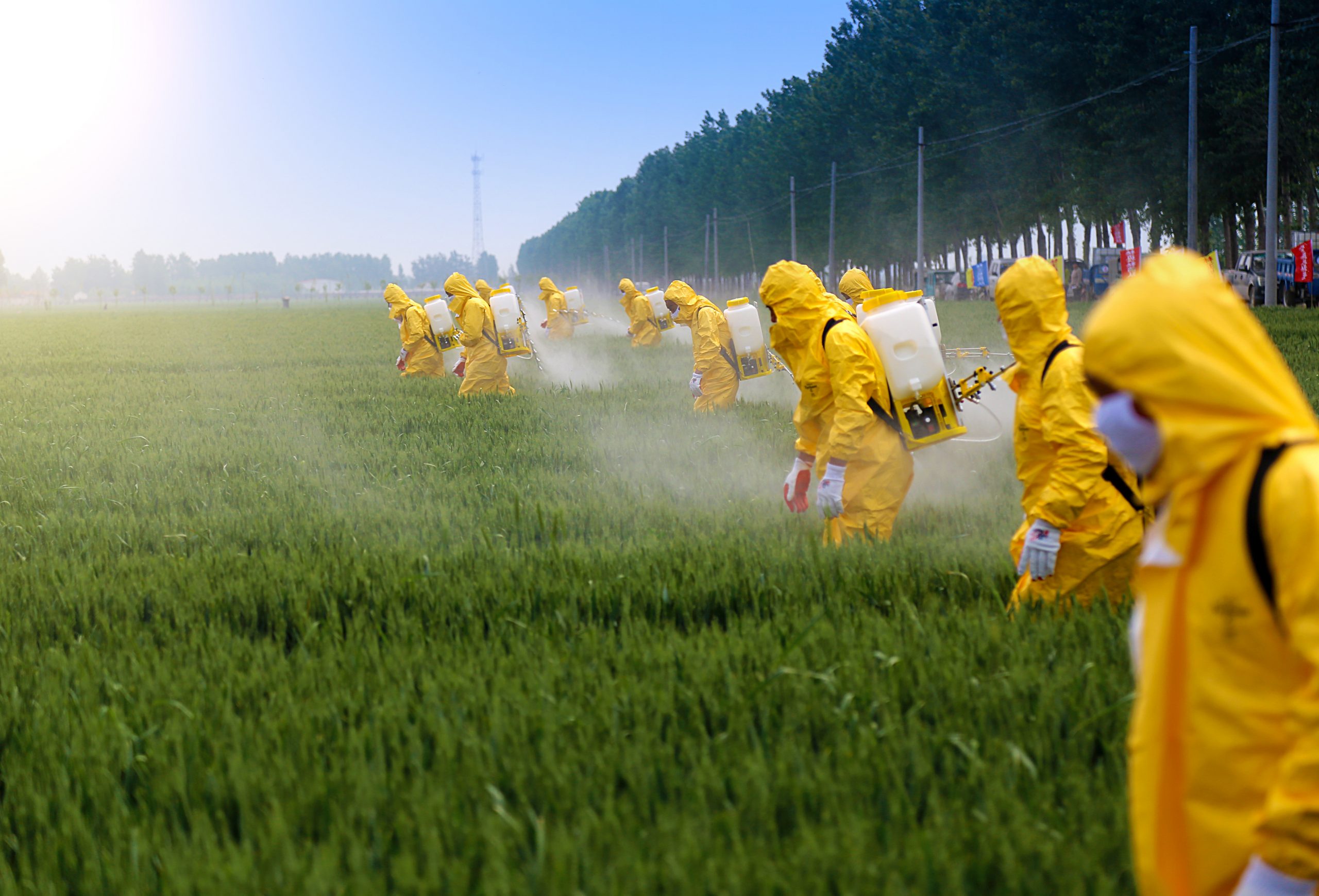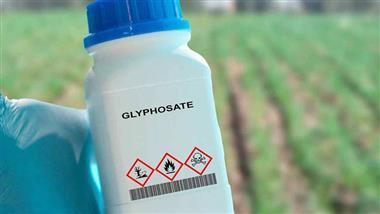Baskut Tuncak is a prominent expert and advocate in the field of human rights and environmental law. He has served as the United Nations Special Rapporteur on human rights and hazardous substances and wastes, where he highlighted the human rights impacts of pollution, toxic chemicals, and hazardous waste on vulnerable populations, including children.
He stated ina November 2017 article:
Our children are growing up exposed to a toxic cocktail of weedkillers, insecticides, and fungicides. It’s on their food and in their water, and it’s even doused over their parks and playgrounds.”
In February 2020, Tuncak rejected the idea that the risks posed by highly hazardous pesticides could be managed safely. He told Unearthed (Greenpeace UK’s journalism website) that there is nothing sustainable about the widespread use of highly hazardous pesticides for agriculture.
Whether they poison workers, extinguish biodiversity, persist in the environment or accumulate in a mother’s breast milk, Tuncak argued that these are unsustainable, cannot be used safely and should have been phased out of use long ago.
In his 2017 article, he stated:
The UN Convention on the Rights of the Child… makes it clear that states have an explicit obligation to protect children from exposure to toxic chemicals, from contaminated food and polluted water, and to ensure that every child can realise their right to the highest attainable standard of health. These and many other rights of the child are abused by the current pesticide regime. These chemicals are everywhere, and they are invisible.”
Tuncak added that paediatricians have referred to childhood exposure to pesticides as creating a “silent pandemic” of disease and disability. He noted that exposure in pregnancy and childhood is linked to birth defects, diabetes and cancer and stated that children are particularly vulnerable to these toxic chemicals: increasing evidence shows that even at ‘low’ doses of childhood exposure, irreversible health impacts can result.
He concluded that the overwhelming reliance of regulators on industry- funded studies, the exclusion of independent science from assessments and the confidentiality of studies relied upon by authorities must change.
And in 2015, writer Carol Van Strum said the US Environmental Protection Agency has been routinely lying about the safety of pesticides since it took over pesticide registrations in 1970.
She has described how faked data and fraudulent tests led to many highly toxic agrochemicals reaching the market, and they still remain in use, regardless of the devastating impacts on wildlife and human health.
In 2017, the then chief scientific adviser to the UK government, Prof Ian Boyd, claimed that regulators around the world have falsely assumed that it is safe to use pesticides at industrial scales across landscapes and the “effects of dosing whole landscapes with chemicals have been largely ignored.”
It is concerning to note that in the 2022 paper ‘Neonicotinoidinsecticides found in children treated forleukaemiasandlymphomas’ (Environmental Health), the authors stated that multiple neonicotinoids were found in children’s cerebrospinal fluid (CSF), plasma and urine. As the most widely used class of insecticides worldwide, they are ubiquitously found in the environment, wildlife and foods.
A 2017 study by Carlos Javier Baier and colleagues documented behavioural impairments following repeated intranasal glyphosate-based herbicide (GBH) (the world’s most widely used agricultural herbicide) administration in mice. Intranasal GBH caused behavioural disorders, decreased locomotor activity, induced an anxiogenic behaviour and produced memory deficit.
The paper contains references to many studies from around the world that confirm GBHs are damaging to the development of the foetal brain and that repeated exposure is toxic to the adult human brain and may result in alterations in locomotor activity, feelings of anxiety and memory impairment.
Research by the US-based Environmental Working Group (EWG) in 2019 found glyphosate residues on popular oat cereals, oatmeal, granola and snack bars. Almost 75% of the 45 samples tested had glyphosate levels higher than what EWG scientists consider protective of children’s health with an adequate margin of safety.
Disturbing levels of such residues have been detected in the UK too.
And there are also shockingly high levels of weed killer in UK breakfast cereals. After testing these cereals at the Health Research Institute in Iowa, Dr Fagan, director of the centre, said:
These results are consistently concerning. The levels consumed in a single daily helping of any one of these cereals, even the one with the lowest level of contamination, is sufficient to put the person’s glyphosate levels above the levels that cause fatty liver disease in rats (and likely in people).”
Aside from the chemicals used in the cultivation of crops, there is also the food itself that is cause for concern.
Bryce Martinez (18) from Pennsylvania is mounting a legal challenge against major food companies, alleging that their ultra-processed foods (UPFs) led to his development of Type 2 diabetes and fatty liver disease at the age of 16.
UPFs have undergone multiple processing steps and often contain additives, preservatives and artificial ingredients. These UPFs have become staples in many households. Examples of UPFs are prepackaged soups, many breakfast cereals, sauces, frozen pizza, ready-to-eat meals, hot dogs, sausages, sodas, ice cream and store-bought cookies, cakes, candies and doughnuts.
Martinez’s legal team contends that the big food corporations have deliberately engineered their products to trigger addictive responses. Martinez had regularly consumed popular UPFs throughout his childhood. The lawsuit challenges the food industry’s argument that consumers have free choice in their dietary decisions. It argues that the notion of free choice is compromised by aggressive marketing tactics, especially aimed at children, and the addictive nature of these products.
Consider that fast food is consumed by 85 million US citizens each day. Several chains are the primary suppliers of many school lunches. Some 30 million school meals are served to children each day. For millions of underprivileged children in the US, these meals are their only access to nutrition.
In 2022, Moms Across America (MAA) and Children’s Health Defense (CHD) commissioned the testing of school lunches and found that 5.3 per cent contained carcinogenic, endocrine-disrupting and liver disease-causing glyphosate; 74 per cent contained at least one of 29 harmful pesticides; four veterinary drugs and hormones were found in nine of the 43 meals tested; and all of the lunches contained heavy metals at levels up to 6,293 times higher than the US Environmental Protection Agency’s maximum levels allowed in drinking water. Moreover, the majority of the meals were abysmally low in nutrients.
As a follow up, MAA, a non-profit organisation, with support from CHD and the Centner Academy, decided to have the top 10 most popular fast-food brand meals extensively tested for 104 of the most commonly used veterinary drugs and hormones.
The Health Research Institute tested 42 fast-food meals from 21 locations nationwide. The top 10 brands tested were McDonald’s, Starbucks, Chick-fil-A, TacoBell, Wendy’s, Dunkin’ Donuts, Burger King, Subway, Domino’s and Chipotle.
Three veterinary drugs and hormones were found in 10 fast-food samples tested. One sample from Chick-fil-A contained a contraceptive and antiparasitic called Nicarbazin, which has been prohibited.
Some 60 per cent of the samples contained the antibiotic Monesin, which is not approved by the US Food and Drug Administration for human use and has been shown to cause severe harm when consumed by humans.
And 40 per cent contained the antibiotic Narasin. MAA says that animal studies show this substance causes anorexia, diarrhoea, dyspnea, depression, ataxia, recumbency and death, among other things.
Monensin and Narasin are antibiotic ionophores, toxic to horses and dogs at extremely low levels, leaving their hind legs dysfunctional. Ionophores cause weight gain in beef and dairy cattle and are therefore widely used but also “cause acute cardiac rhabdomyocyte degeneration and necrosis”, according to a 2017 paper published in Reproductive and Developmental Toxicology (Second Edition).
For many years, ionophores have also been used to control coccidiosis in poultry. However, misuse of ionophores can cause toxicity with significant clinical symptoms. Studies show that ionophore toxicity mainly affects myocardial and skeletal muscle cells.
Only Chipotle and Subway had no detectable levels of veterinary drugs and hormones.
Following these findings, MAA expressed grave concern about the dangers faced by people, especially children, who are unknowingly eating unprescribed antibiotic ionophores. The non-profit asks: are the side effects of these ionophores in dogs and horses, leaving their hind legs dysfunctional, related to millions of US citizens presenting with restless leg syndrome and neuropathy? These conditions were unknown in most humans just a generation or two ago.
A concerning contraceptive (for geese and pigeons), an antiparasitic called Nicarbazin, prohibited after many years of use, was found in Chick fil-A sandwich samples.
The executive director of MAA, Zen Honeycutt, concludes:
The impact on millions of Americans, especially children and young adults, consuming a known animal contraceptive daily is concerning. With infertility problems on the rise, the reproductive health of this generation is front and center for us, in light of these results.”
MAA says that it is not uncommon for millions of US citizens to consume fast food for breakfast, lunch or dinner, or all three meals, every day. School lunches are often provided by fast-food suppliers and typically are the only meals underprivileged children receive and a major component of the food consumed by most children.
Exposure to hormones from consuming concentrated animal feeding operations (CAFOs) livestock could be linked to the early onset of puberty, miscarriages, increasing incidence of twin births and reproductive problems. These hormones have been linked to cancers, such as breast and uterine, reproductive issues and developmental problems in children.
But its all good for profit. McDonald’s, Starbucks, Chick-fil-A, TacoBell, Wendy’s, Dunkin’ Donuts, Burger King, Subway, Domino’s and Chipotle together have annual gross sales in excess of $134,308,000,000.
An analysis of a huge database of 2018’s top-selling ‘crop protection products’ revealed the world’s leading agrochemical companies made more than 35% of their sales from pesticides classed as highly hazardous to people, animals or ecosystems.
The investigation identified billions of dollars of income for agrochemical giants BASF, Bayer, Corteva, FMC and Syngenta from chemicals found to pose health hazards like cancer or reproductive failure.







